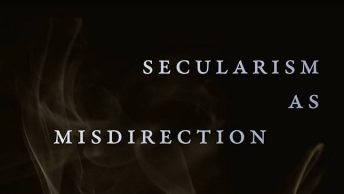The editorial in the latest EPW says there are three serious issues thrown by Raj Thackeray’s movement against North Indian outsiders. One is the presence of a large army of unemployed youth in Mumbai. This, according to EPW, is a result of reckless pursuit of capitalism causing bad amenities, and unsympathetic bureaucracy. People migrate to Mumbai, because the city has mirages of opportunities. As Dipankar Gupta explains in his Nativism in a Metropolis (1982), the senior Thackeray succeeded in 1960s, because of the prevailing unemployment. So, essentially, the EPW’s edit is a confirmation of Gupta’s thesis, and its relevance. This is also supported by Sainath’s article in The Hindu. But one fails to understand why the EPW poses this as if it is a new development caused by the mindless pursuit of capitalism. (what is this mindless pursuit anyway, and how was the earlier unemployment in 1960s caused?).
EPW’s second thesis is difficult to appreciate. It says there is growing diversity in the cities, and therefore, the notion of natives has no relevance in cities. But it admits there is tension between regional identity and cosmopolitanism. This caught the imagination of ordinary Mumbaikar in 1960s, and today the older identity lost to faceless cosmopolitanism. This sense of loss has led to the us vs outsiders syndrome. So, essentially, there has been no difference between the 1960s and now. If the notion of nativism has lost its relevance, then how does it produce tension, when confronted with faceless cosmopolitanism?
EPW’s third thesis says the cultural symbols and identity marks – produced by these fault lines of nativism – have become reference points for social tensions and “we & You” kind of cultural superiority. Today, Raj has been able to frame an agenda of exclusion – privilege certain identities and derecognise some – because there is growing murmur within Marathi society about the genuineness of his grievances. Correct. If the roots of nativism are ignored, it is bound to lead to such unhappy consequences. That is why the constitution makers, in their wisdom, anticipated the influence of nativism, and provided for Article 16(3). Had Parliament enacted a uniform law to manage such nativist demands in time, the Thackerays could have been nipped in the bud. EPW does not say how nativist demands can be managed, even though it blames reckless capitalism. The answer perhaps lies in taking a close look at our Constitution, and the remedies inherent in it.
I shall cite two more observations to buttress the point that nativism need not be seen as contradictory to national unity. The former Chief Justice M.Hidayatullah said: sometimes, local sentiments may have to be respected or sometimes an inroad from more advanced States into less developed States may have to be prevented. (Though he said it in 1970 -Annual Survey of Indian Law, Indian Law Institute, 1970, p.11), it is actually the reverse which is happening now, if the migration from Bihar to Mumbai is an indication).
The eminent sociologist, M.N.Srinivas has also discarded the argument that the sons of the soil movements are anti-national, called for positive steps to neutralise, nativist movements. He said that for certain categories of jobs, especially the semi-skilled and unskilled, local people should be given preferences as a matter of an all-India policy, and insisted that posts requiring specialist qualifications be filled only on merit and on an all-India basis. (On Living in a Revolution and Other Essays, 1982) ( as cited in T.M.Joseph’s Politics of recruitment: Migration and ethnic conflict in Urban India (Bangalore), 1990)
Bangalore, where the natives’ out-migration is not as low as compared to Maharashtra, also has had an aggressive nativist movement in the past. In Mumbai, the proportion of marathi population has declined over the years. It was 40 per cent in 1960, now it is just 30 per cent. In Bangalore, 65 per cent are non-Kannadigas. The sense of insecurity among the natives who claim the cities as their Capitals of their States appears to be natural.






What do you mean by ‘The answer perhaps lies in taking a close look at our Constitution, and the remedies inherent in it’? That parliament should enact legislation to stem interstate migration?
Mr. Venkatesan,
You say:
“The sense of insecurity among the natives who claim the cities as their Capitals of their States appears to be natural.”
I think it’s debatable as to who should be called a native. In Mumbai, at least since the time of independence, Marathis have never comprised a majority. Then, do the non-Marathis in Mumbai also deserve to be called natives. Can the Thakerays be said to be representing the cause of these non-Marathi natives? Should not the ‘insecurity’ of these natives be taken into account?
I guess the bigger question is: Can the natives of a state claim a city as their exclusive domain, regardless of the demographics of the city.
Who is a native is difficult to define as cities like Madras,calcutta and Bombay have a history that cannot be ignored.
Telugus do constitute a significant
population in Chennai.Chennai (Madras) was the capital of Madras
Presidency.Today you find many north indians migrating to Chennai
for job and for business. Bangalore
attracts investments from other states and people as well. We have to look at flows in investments
not just people and also the changing economic profile of cities.Thus in cities like Madras and Bombay most of the ‘locals’ of today are children/grand children
of earlier immigrants. In 1960s
south indians migrated to Bomaby
and Delhi. Their second and third
generation would include those who have moved elsewhere and those who
continue to stay there. This is
an inevitable process. So what is
native and local is not easy to
define or identify. I too find that the EPW edit piece is not
clear on many things. It is easy to
blame capitalism. What is the solution – curbing migration through law or putting restrictions
in terms of quotas and permits. These will not work in India.
Some issues are complex and they defy an easy solution or explanation in terms of few categories such as natives vs non-natives, local vs non-local.
There are mutiple forces at work
and the interfaces between economy,
polity and culture are pretty
complicated. Perhaps one can
see what has been the experience
in cities like New York, London,
Toranto and how globalization is
reshaping them. I have read reviews of Sassen’s book on global
cities and globalization.Similarly
Janaki Nair;s book on Bangalore
can throw some light in this debate.
For Dilip:
Parliament should enact a legislation under Article 16(3) to evolve a uniform policy to reserve jobs in the lower categories, as M.N.Srinivas suggested. For this, only residence requirement must be laid down, as other tests such as place of birth, or mother tongue or proficiency in a language are not valid. There need not be reservation for all posts, but only at the lower levels.
For Junglibandar:
I understand natives in terms of the residence requirement. There has to be a cut-off point, which is reasonable.
Are Marathis natives in Mumbai? There cannot be a city-specific policy to reserve jobs. It has to be State-specific. So all Marathi-speaking people mostly would qualify as natives. There may be non-Marthi speaking people as well to qualify as natives in terms of their fulfilling the residence requirement.
Can Marathis claim to be natives of Mumbai to the exclusion of others? Since, they will be the dominant section among the natives, they are rightly concerned that their share in the population is going down over the years.
Do Marathis have a claim over Mumbai? I think this question is well-settled in terms of the linguistic reogransation. Otherwise, Mumbai need not have been given to Maharashtra as its Capital.
If the Capital is likely to lose its distinctive character, in terms of decline in the dominant linguistic minority group, that is, Marathi-speaking, over the years, is it not a ground for concern for the Marathis?